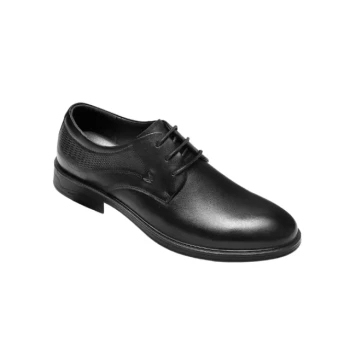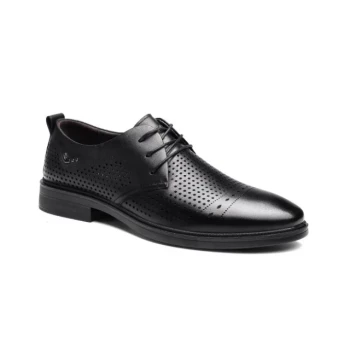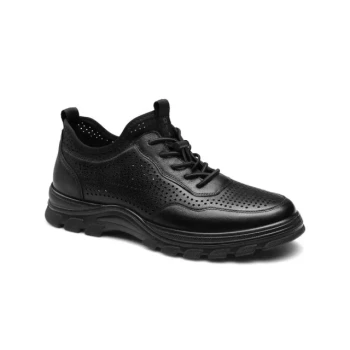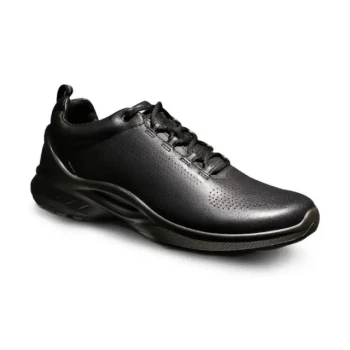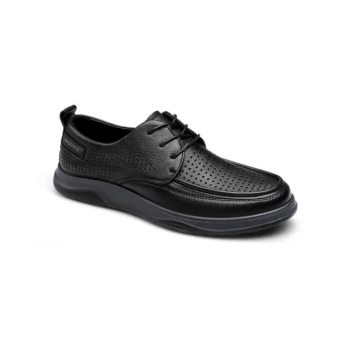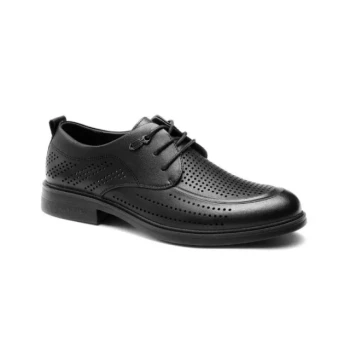In short, business casual shoes are polished footwear that bridges the gap between formal dress shoes and casual weekend wear. This category includes versatile styles like loafers, derby shoes, chukka boots, and even certain high-quality, minimalist sneakers, all chosen to complement professional attire without being overly rigid.
The key isn't a specific shoe model, but its overall appearance. A business casual shoe must look clean, well-maintained, and professional, striking a deliberate balance between comfort and classic style.
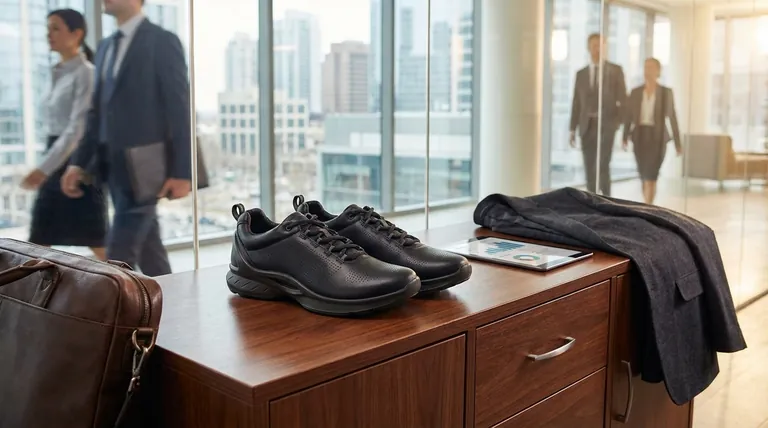
The Guiding Principles of Business Casual Footwear
To navigate this dress code successfully, it's more important to understand the principles than to memorize a list of shoe types. The right shoe projects professionalism and attention to detail.
It Starts with Material
The material is the primary signal of quality and intent. Your choices should be limited to well-constructed, premium materials.
Leather and suede are the undisputed standards. They offer durability, structure, and a refined finish that instantly elevates an outfit.
The Profile Must Be Polished
The silhouette of the shoe matters immensely. Business casual footwear avoids the extremes of bulky athletic sneakers and sharply formal dress shoes.
Look for a clean, sleek profile. The shoe should have a distinct shape and structure, pairing well with tailored trousers, khakis, or slacks.
Color Defines Versatility
The right color ensures your shoes can be worn with a wide range of outfits, maximizing their value.
Stick to classic, versatile colors. Brown, burgundy (oxblood), and black are the safest and most effective choices for a professional wardrobe.
Key Styles to Know
While the principles are paramount, certain styles have become the gold standard for business casual.
The Loafer
Available as penny, tassel, or kiltie loafers, this slip-on style is a cornerstone of business casual. It is exceptionally versatile and works well in nearly any professional setting.
The Derby or Blucher
Often confused with the more formal Oxford, the Derby shoe has an "open lacing" system that makes it slightly less formal and a perfect fit for business casual.
The Chukka or Chelsea Boot
These ankle boots offer a stylish and comfortable alternative. Suede chukka boots, in particular, provide a fantastic blend of texture, comfort, and refined style.
The Monk Strap
This shoe, fastened by a buckle and strap, is a distinctive and fashionable choice that demonstrates confidence and personality while remaining professional.
The Elevated Sneaker
This is the most modern and context-dependent option. To qualify, a sneaker must be made of high-quality leather or suede, feature a minimalist design, and be impeccably clean.
Common Pitfalls to Avoid
Understanding what not to wear is just as important as knowing what to wear. The goal is to look intentional, not like you just came from the gym.
Athletic and Performance Sneakers
Running shoes, basketball shoes, and other athletic footwear are never appropriate for a business casual environment. Their bulky design and technical materials clash with professional attire.
Open-Toed Footwear
Sandals, flip-flops, and other open-toed shoes are strictly for casual, non-work settings. They lack the structure and professionalism required.
Worn or Scuffed Shoes
Even the highest quality shoe can ruin an outfit if it's poorly maintained. Scuffs, dirt, and worn-down heels signal a lack of attention to detail. Investing in quality is pointless without proper care.
Making the Right Choice for Your Goal
Your specific workplace environment and personal style should guide your final decision.
- If your primary focus is classic safety and versatility: A brown or burgundy leather derby shoe is the most reliable choice you can make.
- If your primary focus is comfort without sacrificing style: A suede chukka boot or a high-quality tassel loafer is an excellent option.
- If your primary focus is a modern, creative look: A clean, minimalist leather sneaker can work perfectly in less formal office cultures.
Ultimately, the right business casual shoe completes your professional look with confidence and polish.
Summary Table:
| Key Aspect | What to Look For | What to Avoid |
|---|---|---|
| Material | Premium leather, suede | Athletic fabrics, worn materials |
| Profile | Clean, sleek silhouette | Bulky or overly formal shapes |
| Color | Brown, burgundy, black | Bright colors, patterns |
| Style Examples | Loafers, Derby shoes, Chukka boots | Athletic sneakers, open-toed shoes |
Ready to Elevate Your Professional Footwear Collection?
As a large-scale manufacturer, 3515 produces a comprehensive range of business casual footwear for distributors, brand owners, and bulk clients. Our production capabilities encompass all types of shoes and boots, ensuring premium quality, competitive pricing, and reliable supply for your business needs.
Contact us today to discuss your footwear requirements and discover how we can help you build a successful business casual shoe line!
Visual Guide
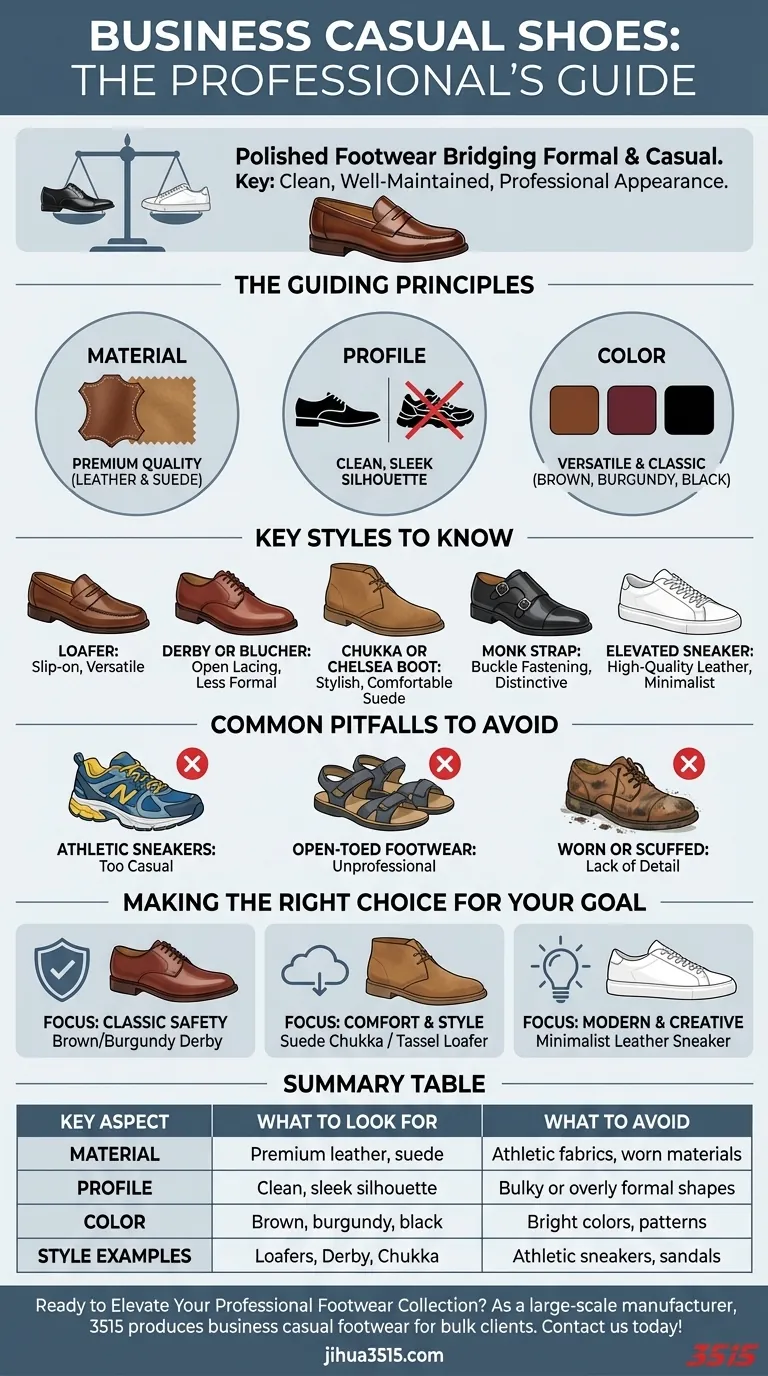
Related Products
- Wholesale Comfortable Business Casual Shoes Custom Manufacturing
- Wholesale Leather Derby Shoes Manufacturer | Customizable Business & Dress Footwear
- Custom Manufactured Air Cushion Leather Business Shoes for Wholesale
- Wholesale Leather Derby Dress Shoes Custom Manufacturer for Brands
- Wholesale Leather Business Casual Shoes with Dial Closure - Manufacturer of Comfort Dress Sneakers
People Also Ask
- What are the key considerations when choosing dress shoes for formal occasions? A Guide to Style, Color & Quality
- What should someone do if they are unsure about a company's dress code? Navigate with Confidence
- What are the long-term benefits of investing in quality dress shoes? Save Money & Boost Your Style
- What types of dress shoes are recommended for formal occasions? A Guide to Impeccable Style
- Is it acceptable to wear dress shoes with casual outfits? Elevate Your Smart Casual Office Style



